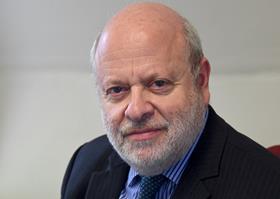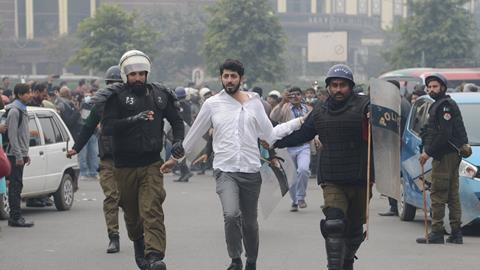The Law Society was quick off the mark after the election in calling on the new government to give an immediate and sustained boost in funding to the justice system, particularly in civil and criminal legal aid.

The new government will have a difficult balancing act between the many sectoral demands now likely to be put to it. This reminded me of two stories affecting lawyers this week, giving rise to conflicting thoughts, not between spending decisions, but between right and wrong.
I start with the much easier, which relates to Pakistan.
Pakistan has been nominated as the focus for the Day of the Endangered Lawyer on 24 January 2020. Pakistani lawyers have suffered the most appalling incidents of mass terrorism, murder, assaults, threats, and other intimidation in the exercise of their professional duties.
The worst incident was in 2016 in Quetta, when the President of the Balochistan Bar Association was shot dead. When his body was brought to the government hospital, many lawyers gathered outside. There was then a terrorist attack on the hospital, killing 94 people, of whom 56 were lawyers. 92 lawyers were injured. There were only 280 lawyers in Quetta before the incident took place.
At least 21 other lawyers have been murdered around the country since February 2018. The record is difficult to believe, but is laid out in great detail in the harrowing background document prepared for the Day of the Endangered Lawyer. The Law Society will be highlighting the plight of Pakistani lawyers at an event on 22 January 2020 in London.
The other side to this story curiously centres around another attack on a hospital in Pakistan. But this time the assailants were lawyers themselves.
Last week, it was reported that hundreds of lawyers, some wielding sticks, attacked a hospital in Lahore. They ransacked wards at the cardiac hospital, beating up staff and smashing equipment. Doctors and paramedics hid, leaving patients unattended, including those in a critical state. It was reported that three patients died, including one woman in intensive care.
The cause of the violence was a dispute over conduct and treatment between a group of lawyers and hospital doctors. But it doesn’t really matter what the cause was, since the conduct of the lawyers is incomprehensible and inexcusable.
And, having recited the two stories, there is no real balance. Just because certain lawyers behave in one way (appallingly) does not excuse the treatment meted out to lawyers in another way (even more terrible). This is an easy case, and the focus on endangered lawyers in Pakistan should remain strong, because they desperately need our support.
Much, much more difficult is the case of China. Last week, stretching over International Human Rights Day on 10 December, the Chinese Ministry of Justice and the All China Lawyers Association held the Global Lawyers Forum, which was committed, among other things, to ‘jointly promoting a civilized world ruled by law’.
China and the rule of law are a well-known issue. The mass incarceration of Uighurs is just one of the many well-documented abuses. Its treatment of lawyers is appalling. Many bars around the world send regular letters to the Chinese authorities protesting about this treatment – for instance, there have been 11 such letters from the Council of Bars and Law Societies of Europe (CCBE) over this year alone.
Nevertheless, various international bar leaders chose to spend International Human Rights Day 2019 in Guangzhou at the Global Lawyers Forum. The Presidents of the International Bar Association (IBA), the Union Internationale des Avocats (UIA), the CCBE and the Bar Council of England and Wales were among them.
As the conference got under way, more than 10 police surrounded the apartment of one spouse of a detained lawyer, preventing her from leaving.
The wife of another detained lawyer put out a plea to the participants: ‘You have the responsibility and obligation to ask the Chinese government that invited you: ‘Is Gao Zhisheng alive? Or else, why did you come? To enjoy the air tickets, the hotels and luxurious hospitality of the Chinese Communist party’s dictatorship … or to let the CCP use your status and reputation to once again proclaim the greatness of CCP rule at home and abroad?’
The IBA co-signed a letter a few days before the forum, specifically drawing attention to the forum, and reciting the treatment of lawyers and asking the government to respect the rule of law. The Bar Council put out a statement to similar effect before the forum as well.
But what is the right thing for lawyers to do in such circumstances: to engage with the Chinese authorities, despite the terrible abuses, in the hope of highlighting and improving the position, or to refuse to have anything to do with them?
































No comments yet